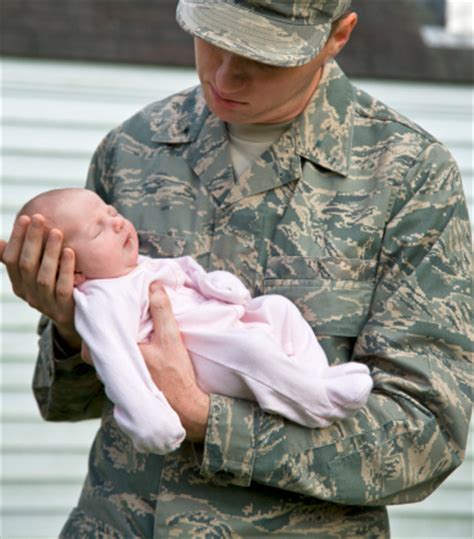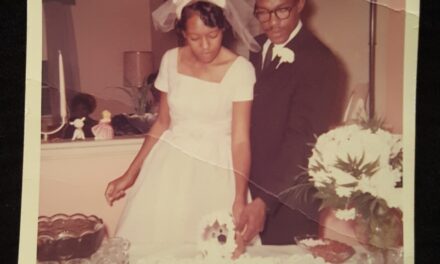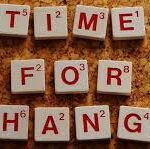Self-disclosure.
I feel as if I must have been living under a rock. It wasn’t until just the other day that I first read about, or even heard the term, “free birth”. I‘m feeling rather sheepish about this, because… well… I’m an Obstetrician. I’m an Obstetrician, and I’ve been one since 1994.
I thought that, when it came to movements around unconventional births, I’d heard it all… from the birth planners; to the water movement birthers; to the “plant my placenta” enthusiasts, I thought that I knew about everything out there.
Clearly, I didn’t.
And, while I was familiar with so many of these unorthodox forms of labor and birth, I remained unaware of what, I feel, is the most reckless and dangerous way in which a woman, living in a first world nation, can deliver a baby.
My awareness came through an article, posted on Facebook by a colleague, about a woman whose child was stillborn, after she’d been pregnant for 45 weeks.
For those who don’t know, a pregnancy is dated for 40 weeks from a woman’s last menstrual period. 40 weeks is the due date.
And why is that significant?
Beyond that 40th week, there will be a gradual decline in the efficiency with which the placenta works. This means that, over time, it will deliver blood, oxygen and nutrients to the fetus in a less efficient manner. Eventually, if the mother remains pregnant, there will be fetal compromise.
Evidence-based medicine has established that, while pregnancies are dated for 40 weeks, they should never exceed 42 weeks; and as Obstetricians, we rarely let them progress even that far.
You might ask why we would allow them to surpass the 40th week at all. The answer to this has a great deal to do with the accuracy with which a pregnancy is dated. For a woman who: has a regular menstrual cycle; is fairly certain of her last menstrual period; has had the benefit of an early obstetric ultrasound, we can rely upon the dates that are given as accurate; and we do not worry about the possibility of delivering a premature infant, IF it becomes necessary to induce her labor.
However, if there is uncertainty about the last period, a history of irregular menses; and if a woman presents at a late stage of pregnancy when initiating her prenatal care, it becomes more difficult to accurately date the pregnancy. This means that pregnancies that are estimated to be 40 weeks, may really be closer to 38.5, which will carry a slightly higher risk of prematurity. Of course, these pregnancies could also be closer to 41.5, placing the fetus at greater risk for being largely disproportionate to the mother’s pelvis with an increased risk of cesarean, forceps or vacuum delivery; or increase the risk of fetal death due to placental insufficiency.
The most salient takeaway from all of this information is that remaining pregnant beyond 42 weeks of pregnancy is not anything that should EVER knowingly be done.
But for this poor mother, she allowed her pregnancy to continue for more than a month beyond her due date. It appears that at times she felt uncertain, and maybe even afraid. However, her free-birth cohorts encouraged her to forge ahead. In posts that have now been removed from their social media sites, they told her that she was mom, and she knew best. “Just keep doing what you’re doing,” they encouraged. And she did.
Until at 45 weeks, when she’d been in labor for about 6 days, and was no longer feeling her baby move, she sought medical care. And the unthinkable, but completely avoidable had happened. Her baby had died.
The irony of this is that she avoided doctors and hospitals in order to have a free birth experience, anticipating a beautiful, bouncing baby at the end of it all. Instead, she ended up with a hospital birth anyway, surrounded by all of the people that she’d vowed to avoid, but, with the end bringing death of her child, instead of new life.
What a horrific and painful irony.
What I came to learn about free birthers is that they are seeking a birth that is autonomous and free from ANY medical intervention, recommendations or oversight.
On the Free Birth Society’s website, they have written,
“Welcome to Free Birth Society-Where Birth is Wild and On Your Terms”
They go on to say,
“Free Birth Society is a safe space for wild women and questioning seekers. We welcome experienced birthers and those who may be in the beginning stages of their explorations outside of the medical paradigm.”
Their philosophy seems to hinge on the notion that pregnancy and birth are naturally occurring phenomena, and that this precludes the need for medical observation, recommendations and intervention. In other words,
“Because birth is natural, a woman can do it sans modern medicine.”
“Because birth is natural, a mother will intuit all that must be done, how to plan, how to adjust and how to behave, so that birth can occur organically… and all will be well.”
They don’t seem to understand that there are many things that are naturally arising, yet very dangerous and lethal. Take, for instance, hypertension or cancer. Often, these are spontaneously arising, and without provocation. They have occurred, not necessarily because of something unnatural. Rather they have occurred because of a naturally arising change in tissue and tissue behavior. Often, they occur merely due to aging organs.
These are natural events.
Does the fact that they are natural make them any less deadly? Does it make hypertension any less likely to cause a devastating stroke or heart attack? Does it make cancer any less likely to kill in a variety of ways?
No. It does not.
And so, what do we do?
We seek treatment. We seek things out that will mitigate the effects of these diseases.
Pregnancy, of course, is not a disease, and should never be treated as one. However, disease can arise as a result of pregnancy. And that can be devastating.
And even in the face of a seemingly uncomplicated pregnancy, there are a litany of things that can go wrong during labor, and just as many that can go wrong during birth.
As obstetricians, we typically enjoy a specialty that is full of wonderful things and perfect outcomes. We are serving women of reproductive age, which means that most will be healthy. And, if nothing else, they will be resilient.
And we are, after all, helping them to successfully navigate a very natural process. They tend to do well, no matter what… the operative words being, “… tend to”.
As we enjoy this very happy specialty, we rarely see tragedies. We rarely see things go very wrong, although in obstetrics, they certainly can. And when they go wrong, the progression of wrong-going can occur at a dizzying pace.
But in labor rooms all over the world, when things start to go awry, we are there to minimize poor outcomes.
We are there to prevent the cerebral palsy that can occur when the second stage of labor was just too long, and a fetus is deprived of oxygen.
We are there to do a rapid operative delivery to save mother and baby, should the placenta shear away from the uterus, and mother start to hemorrhage.
We are there to do a manual removal of the placenta should it be retained after birth and mother placed at risk for bleeding to death.
We are there to right things when they start to veer off track.
And alongside us is a team of skilled nurses who serve as first watch. They are the sentries.
And flanking us is the neonatal team, always ready and available to resuscitate a newborn who has remained blue a little too long; or whose heart rate or respiratory rate is too low or too slow; or who remains flaccid and weak, unable to give a robust cry.
We are the police force, the fire brigade, the calvary that you hoped you would never need, but are so glad that they arrived.
Bound by clinical and ethical standards based upon decades of medical research, we act swiftly and expeditiously to prevent complications that can turn a family’s happiest moment into its most tragic.
Why a family would deny themselves the benefit of having a team on standby, simply to be “wild”; simply to exercise autonomy, as opposed to collaboration, on behalf of their unborn child, is beyond me.
I believe in a patient’s right to informed consent. And we must respect her right to autonomy. To not do so, is, in fact, an ethical breach on our part.
However, I simply don’t understand why autonomy would win out over safety.
Is the point to be proven worth such a risk? Is it worth a child who is significantly neurologically impaired? Is it worth planning a memorial service instead of a sip-and-see?
The ultimate question is: how can something that is free come at such a great price?










